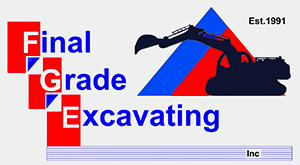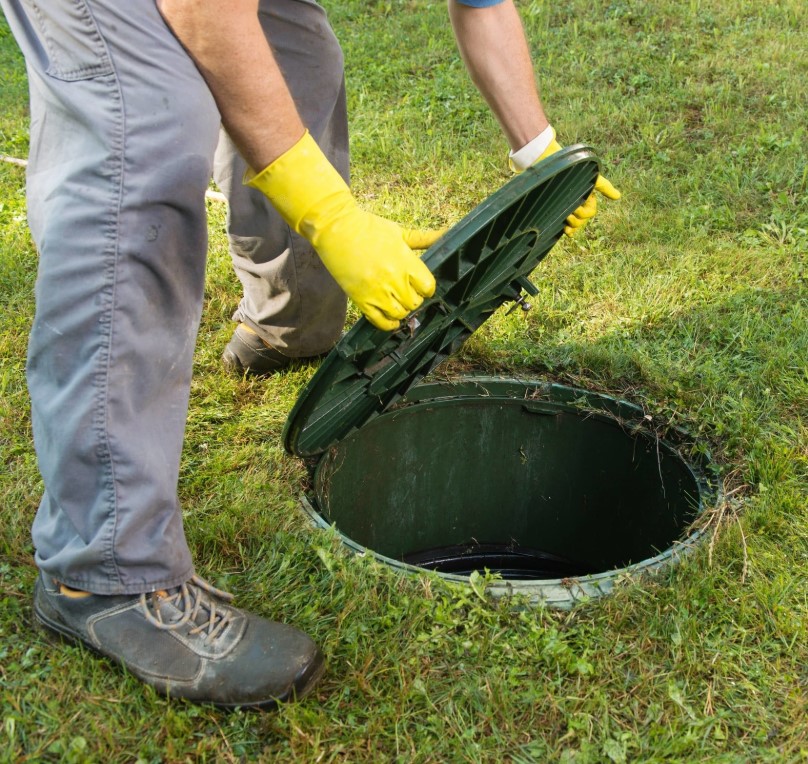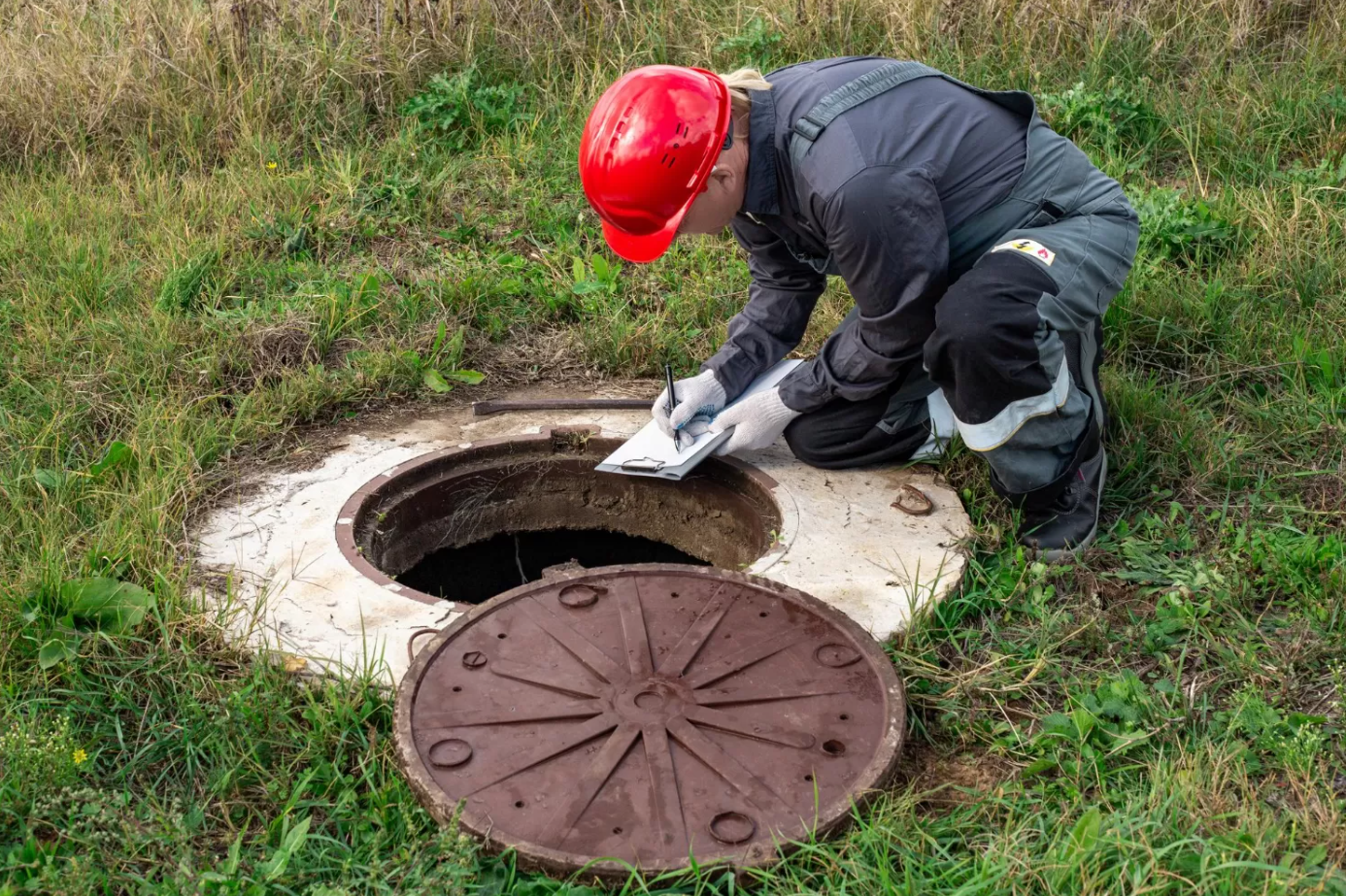
Septic Inspections Near Hamilton County, Indiana
Final Grade Excavating, Incorporated is Committed to superior quality and results!

AVOID COSTLY MISTAKES:
Do NOT hire an excavating contractor without first reading our free guide:
The ULTIMATE Excavation & Septic "Success Guide."

Septic Inspections Near Hamilton County, Indiana: Your Complete Guide
If you own a property with a septic system in Hamilton County, Indiana, regular septic inspections are essential to maintaining your system’s health and avoiding costly repairs. Whether you're a homeowner or a business owner, understanding the benefits, knowing how to find a reliable inspector, and learning about the inspection process can make all the difference in preserving your septic system’s efficiency. This guide provides comprehensive information about septic inspections near Hamilton County and why they’re crucial for any property with a septic system.
How Can We Help?


Why Are Septic Inspections Important?
Septic inspections are essential for a few key reasons. Firstly, they help identify any underlying issues with your septic system early on, preventing small issues from becoming costly repairs. Regular inspections are also necessary to maintain the health and safety of your home or business environment, ensuring that waste is properly managed and does not contaminate the surrounding soil or water sources.
When septic systems go unchecked for extended periods, they can develop problems that might lead to backups, leaks, and contamination. For property owners in Hamilton County, regular inspections offer peace of mind, knowing that their system is functioning properly and that it complies with local health regulations. Inspections are often recommended annually, though the frequency may vary based on your property’s needs.
Benefits of Hiring Professional Septic Inspections Near Hamilton County
Hiring a professional septic inspector near Hamilton County offers several advantages. Here are the key benefits:
► Accurate Diagnosis: A trained inspector will provide an accurate assessment of your septic system’s current condition. With professional tools and experience, they can detect issues that may not be apparent to the untrained eye.
► Preventative Maintenance: Regular inspections serve as preventative maintenance, helping you avoid significant septic system failures. By catching minor issues before they become major, you’ll save money in the long run.
► Health and Environmental Safety: A malfunctioning septic system can lead to groundwater contamination, which poses health risks to your family and neighbors. Professionals ensure your system is not leaking or posing a risk to nearby water sources.
► Longer System Life: With regular inspections and timely maintenance, your septic system will operate efficiently for a longer time, potentially lasting 20-30 years or more.
► Compliance with Local Regulations: Hamilton County and the state of Indiana have specific guidelines for septic system maintenance. A certified inspector will ensure your system meets all health and safety standards, keeping you compliant with local regulations.
What is the Process for Hiring Septic Inspections Near Hamilton County?
Choosing a professional for pond construction has several benefits, from expertise in landscape design to access to specialized equipment. Here are key reasons to rely on a professional pond contractor:
► Experience and Knowledge: Professional contractors bring years of experience to the table, understanding everything from soil composition to hydrology. Their expertise allows them to address potential issues before they arise, ensuring a successful project.
► Quality Workmanship and Materials: Professionals use high-quality materials like pond liners, filtration systems, and pumps, which are essential for a durable, long-lasting pond. They also have access to specialized equipment that ensures the job is done efficiently and safely.
► Time and Cost Efficiency: Attempting a DIY pond project can quickly become time-consuming and costly. Professionals have the skills and equipment to complete the project faster, often saving money in the long run.
► Ongoing Maintenance Options: Many pond contractors offer maintenance services to keep your pond in top condition. Regular maintenance can prevent common issues like algae buildup, water stagnation, and equipment malfunctions.
► Compliance with Local Regulations: Professional pond contractors are familiar with local and state regulations in Indiana, ensuring your pond meets all legal requirements, including zoning laws and environmental guidelines.
See Our Excavation and Septic Services

✔️ Commercial Excavation
✔️ Residential Excavation
✔️ Swimming Pool Excavation
✔️ Basement Excavation
✔️ Remodeling Excavation
✔️ Demolition - Smaller Sheds, Barns, Mobile Homes, Single Family Homes
✔️ Small Pond Construction
✔️ Dozer Work
✔️ Footings
✔️ Driveways
✔️ Parking Lots
✔️ Septic Inspections
✔️ Septic Installs Traditional Systems
✔️ Septic Tanks - Aerobic Systems
✔️ Septic Tanks - Plastic/Poly
✔️ Septic Tanks - Concrete
Quality Services Launched FAST!

✔️ Drain Field Replacement
✔️ French Drains
✔️ Retaining Walls
✔️ Sewer Repairs
✔️ Camera Inspections
✔️ Drainage Systems
✔️ Foundation Repairs
✔️ Full Site Preparation
✔️ Trenching
✔️ Utilities Trenching
✔️ Residential Bridge
✔️ GPS Laser Grading
✔️ Seawall Construction
✔️ Dredging
✔️ Grinder Pits
✔️ Force Mains
✔️ Riprap
What Are You Waiting For?
What is the Process for Hiring Septic Inspections Near Hamilton County?
When looking to hire a professional for septic inspections near Hamilton County, Indiana, there are a few steps to ensure you’re choosing a qualified service provider. Here’s a straightforward process:
Step 1: Research Local Septic Inspection Services
Begin by researching septic inspection services available near Hamilton County. Look for companies with a strong reputation, positive reviews, and certified inspectors. Focus on those that specialize in septic inspections and have experience with both residential and commercial properties.
Step 2: Verify Credentials and Certifications
Indiana has licensing requirements for septic system inspectors. Verify that the inspector you choose is certified, licensed, and experienced. This ensures they follow state and county guidelines and use approved methods for their inspections.
Step 3: Inquire About the Inspection Process
A reliable inspector will walk you through the steps of the inspection. They will explain what to expect, the tools they will use, and how they will assess each part of your system. Understanding the process can help ease any concerns and prepare you for the inspection.
Step 4: Request an Estimate
Before hiring, request a detailed estimate. Septic inspection costs can vary, so it’s wise to compare prices. Keep in mind that the cheapest option may not always be the best; prioritize quality and reputation over cost.
Step 5: Schedule the Inspection
Once you've selected an inspector, schedule a time for the inspection that works for both parties. Most inspections are completed in a few hours, though larger or more complex systems may take longer.
Step 6: Review the Inspection Report
After the inspection, you will receive a report detailing the findings. This report is essential for understanding your septic system’s condition and identifying any necessary repairs or maintenance steps.
What to Expect During a Septic Inspection
Understanding what a septic inspection entails can help you better prepare. Here’s a breakdown of the steps involved:
1. Initial Assessment and Record Review
The inspector will start by reviewing any records of past inspections, maintenance, or repairs on your system. This history helps them understand previous issues or patterns.
2. Visual Examination of the Septic Tank
The tank will be inspected for any visible signs of damage or wear. The inspector will look for cracks, leaks, or buildup around the tank.
3. Checking the Sludge and Scum Layers
The inspector will measure the levels of sludge and scum in the tank. These layers must be within acceptable limits; if they are too high, it may indicate that pumping is necessary.
4. Drain Field Assessment
The drain field is crucial to your system’s function, as it allows wastewater to be filtered naturally. The inspector will ensure that it is draining properly and is not saturated.
5. System Component Inspection
The inspector will check other system components, such as pumps, filters, and alarms, to ensure they’re functioning correctly.
6. Report and Recommendations
After completing the inspection, the inspector will provide a report with detailed findings and any recommended actions. This may include suggestions for repairs, maintenance, or immediate pumping if required.
How Often Should You Schedule a Septic Inspection in Hamilton County, Indiana?
While Indiana guidelines may vary, it’s generally recommended to schedule a septic inspection once a year. However, the frequency can depend on several factors, including:
► System Age and Condition: Older systems may require more frequent inspections.
► Usage: High-usage properties may need more frequent inspections.
► Recent Issues: If your system has had recent problems or repairs, more frequent inspections can prevent recurrence.
Staying proactive about inspections can prevent unexpected issues and help maintain your system's performance.
Tips for Maintaining Your Septic System in Hamilton County, Indiana
In addition to regular inspections, follow these maintenance tips to ensure your system remains in optimal condition:
► Limit Water Usage: Excessive water can overwhelm your septic system. Spread out laundry loads and avoid running multiple water-heavy appliances at once.
► Avoid Flushing Non-Biodegradables: Only flush human waste and toilet paper. Items like wipes, diapers, and sanitary products should never go down the drain.
► Use Septic-Safe Cleaners: Some cleaning products can harm septic systems. Look for cleaners labeled “septic-safe.”
► Schedule Regular Pumping: Pumping removes sludge and prevents tank overflows. Consult with your inspector to determine the ideal pumping schedule for your system.
Hours: Mon-Sun 7:30am to 7:30pm
Extended hours by appointment only.
Address: 6787 E 171st St, Noblesville, 46062, Indiana, USA
All rights reserved | Client Support Area
Facebook